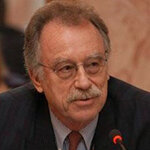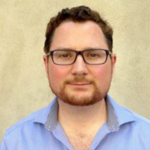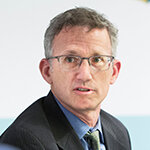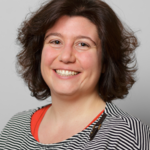The BTI project is carried out in consultation with an interdisciplinary board of experts that helps to define the project focus, identifies challenges and debates project results.

Franz-Lothar Altmann is an Associate Professor at the UNESCO Department for Interculturality, Good Governance, and Sustainable Development, Faculty of Philosophy, University of Bucharest. He is also a long-standing member of the NATO Partnership for Peace (PfP) Consortium for Southeast Europe, the Prize and Scholarship Committee of the Southeast Europe Association, and Emeritus Editor of Southeast European and Black Sea Studies, as well as co-editor of the Tirana Observatory. His publications include ten books and approximately 300 scholarly articles. He has held teaching positions and research fellowships at the Ekonomický Ústav ČSAV, the Air Force Officers’ School in Neubiberg, Boston University, the Woodrow Wilson Center, Tohoku University, the A.S. Onassis Foundation, and Portland State University.

Christoph Beier is Lecturer at the Department of Geopgraphy at the University of Bonn. Before, he was Vice Chair of the Management Board of the Deutsche Gesellschaft für Internationale Zusammenarbeit (GIZ) GmbH and held various leading management positions within GIZ, heading the Planning and Development Department as well as various Regional Departments. He advised the Ministry of the Interior of Indonesia on decentralization and worked as research and teaching assistant to the chair for economics and social geography at the Ruhr-University Bochum.

Klaus Bodemer is a political scientist and expert on Latin America. He was Director of the GIGA Institute of Latin American Studies in Hamburg from 1996 to 2006 and Senior Fellow of the GIGA from 2006 to 2018. In 2000, he was appointed professor at the University of Hamburg. His work as project manager at the Friedrich Ebert Foundation took him to Montevideo, Uruguay, from 1991 to 1994. In the course of his academic career, he has been employed at various national and international universities as well as the Rhineland-Palatinate University of Education. His work focuses on international relations and Latin America studies.

Nic Cheeseman is Professor of Democracy at the University of Birmingham, and the Director of the Centre for Elections, Democracy, Accountability and Representation (CEDAR). He was formerly the Director of the African Studies Centre at the University of Oxford. Dr Cheeseman has won a number of awards and prizes including the Joni Lovenduski Prize of the Political Science Association of the UK for outstanding professional achievement and the Economic and Social Research Council prize for “outstanding international impact”. He is also the author or editor of more than ten books, including How to Rig an Election (2018) – selected as one of the books of the year by the Spectator magazine. A frequent commentator on democracy, elections and global events, Dr Cheeseman’s analysis has appeared in the Economist, Le Monde, Financial Times, Newsweek, the Washington Post, New York Times, BBC, and the Africa Report.

Jörg Faust is Director of the German Institute for Development Evaluation (DEval) and Adjunct Professor of Political Science at the University of Duisburg-Essen. After studying economics and receiving a Diplom-Kaufmann degree from the University of Mannheim, he earned his doctorate in Political Science from Johannes Gutenberg University Mainz in 1999. From 2007 to 2014, he headed the Department of “Governance, Statehood, Security” at the German Development Institute (DIE/IDOS). Jörg Faust is a member of the Scientific Advisory Board of the Bertelsmann Transformation Index (BTI). From 2021 to 2025, he served as Chair of the Evaluation Group of the OECD Development Assistance Committee (DAC).

Finn Heinrich
Finn Heinrich is a Director in the Democracy and Social Cohesion Programme at the Bertelsmann Stiftung. Previously, he held senior programmatic positions with international foundations and NGOs in the fields of democracy, governance and civil society, such as at Open Society Foundation’s Europe and Central Asia Programme, CIVICUS: World Alliance for Citizen Participation, Transparency International and Democracy Reporting International.

Eberhard Kienle
Eberhard Kienle is Research Professor at the Centre National de la Recherche Scientifique (CNRS) and teaches Political Science at the Institut d’Études Politiques (IEP) at Sciences Po Paris, having previously served as Head of the Institut français du Proche-Orient (Ifpo) in Beirut. He currently works on the dislocation of states in the Middle East, the regional political order, and the link between economic liberalization and political transformations in the region. His publications include Egypt: A Fragile Power (Abingdon: Routledge, 2022) and States under Stress: Explaining Resilience in the Middle East (Cambridge: Cambridge University Press, 2026).
.

Rolf J. Langhammer was Vice-President of the Kiel Institute for the World Economy between 1997 and 2012. After his retirement, he continues to work at the Institute. Between April 2003 and September 2004 he served as Acting President. From 1995 to 2005, he headed the Research Department "Development Economics and Global Integration" at the Institute. In addition, he has been honorary professor at Kiel University since 1995. Mr. Langhammer has served as consultant and advisor to international and national institutions. His research issues cover international trade patterns, trade policies, regional integration and international capital flows. He has published widely in professional journals.

Wolfgang Merkel
Wolfgang Merkel served as Director of the Research Department “Democracy and Democratization” at the WZB Berlin Social Science Center and as Professor of Political Science at Humboldt University of Berlin. He is a member of several important advisory and academic bodies, including the Berlin-Brandenburg Academy of Sciences and Humanities. In addition, he serves as a non-partisan member of the Basic Values Commission of the SPD Executive Committee. He has published extensively on topics such as system transformation, democracy and democratization, the crisis of democracy, democratic resilience, militant democracy, political parties, comparative political science, the future of social democracy, welfare states, and social justice.

Ted Piccone
Ted Piccone is a recognized expert on global democracy and human rights policies, emerging powers, multilateral affairs, and U.S.-Latin American relations. He currently serves as a nonresident Senior Fellow with the Brookings Institution specializing in international order and strategy and Latin America. He also is as an Advisor to the Club de Madrid and directs its Global Commission on Democracy and Multilateralism. Mr. Piccone was a senior foreign policy advisor at the State Department, National Security Council and the Pentagon, and in 2017-2018, was the inaugural Brookings-Robert Bosch Stiftung Transatlantic Initiative Fellow in Berlin.

Hans-Jürgen Puhle is Professor emeritus of Political Science at Goethe University Frankfurt. Previously, he taught at the Universities of Münster and Bielefeld. He has held visiting professorships, among others, at Harvard University, Oxford University, Cornell University, Stanford University, Tel Aviv University, Pompeu Fabra University in Barcelona, the University of Chile, FLACSO Buenos Aires, the Juan March Institute in Madrid, as well as at other European, North American, and Latin American universities and research centers. His main research interests include problems of modernization and developmental paths of European, North American, and Latin American societies in comparative perspective; political parties, movements, interest groups, and the public sphere; the welfare state; nationalism and populism; regime change; issues of democracy and democratization; as well as processes of political communication and mediation.

Jale Tosun is Professor at the Institute of Political Science at Heidelberg University and Deputy Director of the Heidelberg Center for the Environment. Previously, she conducted research and taught at the Universities of Konstanz and Mannheim. In research, she collaborates closely with the University of Oslo, and in teaching with the University of Copenhagen. Her research combines concepts and methods from policy research, political economy, political sociology, and public administration. She publishes primarily on climate, energy, and environmental policy, as well as on international development cooperation and sustainable transformation. Her expertise encompasses comparative policy analysis and the implementation of environmental protection measures in diverse institutional contexts.

Uwe Wagschal
Uwe Wagschal is Professor for Comparative Politics at the University of Freiburg. He received his M.A. in Political Science (1992), his Diploma in Economics (1993) and his PhD in Political Science (1996) from the University of Heidelberg. In 2003 he became Professor for Political Science at the University of Munich and in 2005 at the University of Heidelberg. His main interests are public finance, direct democracy and political institutions. He is also author of a book about statistics for political scientists.